
Nearly all women experience a decrease in libido as they go through perimenopause and menopause, but it remains unaddressed

Nearly all women experience a decrease in libido as they go through perimenopause and menopause, but it remains unaddressed

Fulton County leaders tackle healthcare disparities by forming partnerships and enhancing access, aiming for equitable health solutions in Georgia. Pamela Roshell, Ph.D., and LaTrina Foster spoke with Managed Healthcare Executive in this second part of a two-part video interview series.

Consistent moderate physical activity significantly reduces the risk of digestive system cancers, highlighting the importance of long-term exercise for prevention.

Fulton County, Georgia addresses health disparities through innovative partnerships, expanding access to care and a holistic approach to behavioral health services, according to county experts LaTrina Foster and Pamela Roshell, Ph.D., in this first part of a two-part video series.

Next-generation sequencing (NGS) holds great promise for identifying 'tumor-agnostic' therapies, but evidence does not support its routine use in clinical care and diagnosis of sarcoma, a consensus statement concludes.

Transitions of Care (TRC), Medication Reconciliation Post-Discharge (MRP), and Plan All-Cause Readmissions (PCR) are among the measures that have a major effect the Star Rating of health plans.
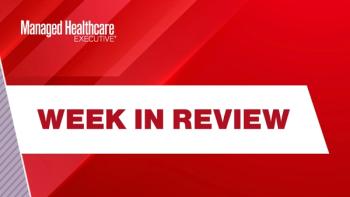
Here’s what you missed this week on Managed Healthcare Executive.

Although people are living longer with HIV, patients must still grapple with survivors’ remorse and the challenges of growing older within an ageist society.

Early childhood stressors, like divorce, could increase the risk of developing psoriasis later in life, highlighting the importance of emotional well-being, according to the results of a recent Swedish study.

A recent JAMA Pediatrics study revealed the enduring effectiveness of the HPV vaccine, highlighting its role in reducing cancer risk among young women.

AI revolutionizes member health risk identification, outperforming traditional models by integrating diverse data for proactive care in managed care settings.

Cardiovascular, Renal and Metabolic Conditions Increasingly Prevalent, Expensive for Medicare Fee-For-Service Population

Although dry eye disease (DED) affects millions of Americans, there is a lack of effective treatment options and discontinuation rates are high, according to an abstract presented at AMCP Nexus 2025.

New data reveals a rising trend in generalized anxiety disorder (GAD) prevalence among U.S. adults, emphasizing the need for improved diagnosis and treatment.

An abstract presented at AMCP Nexus 2025 showed that Medicaid drug spend in 10 states in FY 2023 was approximately equal to or less than the national drug spending rate of 14%.

Critics say it doesn’t address the misalignment and a shift from the major PBMs collecting fees instead of rebates.

A study at AMCP Nexus 2025 reveals how drug rebates and net prices influence insurance coverage for specialty drugs, impacting patient access.

An abstract presented at AMCP Nexus 2025 showed the overuse of opioids following successful cancer treatment is detrimental to patient health and expensive.

"It’s people versus business interests, party interests, and ideology," Robert Costa of CBS News told the AMCP Nexus audience.

Self-injected Brekiya (dihydroergotamine mesylate) is now available by prescription for patients suffering from cluster headaches and migraines with aura.

Fifty-four percent of patients ages 12 to 18 with severe alopecia noticed hair regrowth when given 4-mg of Olumiant (oral baricitinib), according to results of a study presented this week at the 2025 Fall Clinical Dermatology conference.
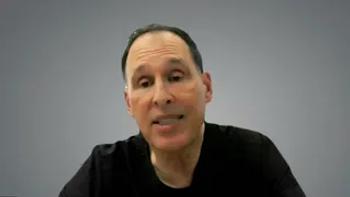
In this second segment of an interview with Managed Healthcare Executive about this presentation about aesthetic dermatology at the 2025 Fall Clinical Dermatology Conference, Mark S.Nestor, M.D., Ph.D., discussed botulinum toxin injections, the effects that injections into the glalbella can have on depression and differing molecular potencies of the different brands of botulinum toxin.

In this first segment from an interview with Managed Healthcare Executive about his presentation about trends in aesthetic dermatology, the 2025 Fall Clinical Dermatology Conference in Las Vegas, Mark S. Nestor, M.D., Ph.D., talks about the shift away from hyaluronic acid to collagen stimulators, such as poly-L-lactic acid.
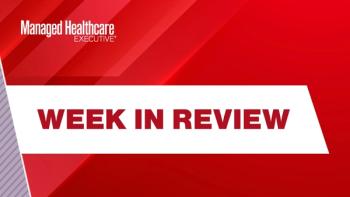
Here’s what you missed this week on Managed Healthcare Executive.

Mona Shahriari, M.D., dermatologist at Central Connecticut Dermatology and an associate clinical professor at Yale School of Medicine discusses the highlights of her session called ‘Seeing Clearly: A Visual Guide to Diagnosing Prurigo Nodularis in Skin of Color.’
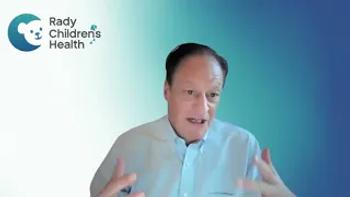
Determining a biologic's duration of use to treat pediatric atopic dermatitis has several factors, according to Lawrence Eichenfield, M.D., chief of pediatric and adolescent dermatology at Rady Children’s Hospital, San Diego.

Expensive, newer therapies and a lack of pediatric data are roadblocks to advancing treatment for pediatric atopic dermatitis, according to Lawrence Eichenfield, M.D., chief of pediatric and adolescent dermatology at Rady Children’s Hospital, San Diego.

Lawrence Eichenfield, M.D., chief of pediatric and adolescent dermatology at Rady Children’s Hospital, San Diego, gives an overview of his session at the 2025 Fall Clinical Dermatology Conference.

Lawrence Eichenfield, M.D., chief of pediatric and adolescent dermatology at Rady Children’s Hospital, San Diego, discusses why his clinic has shifted towards earlier atopic dermatitis treatment for patients.
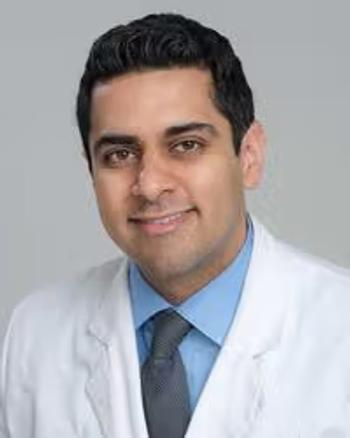
Shawn Kwatra, M.D., reveals new OX40 ligand therapies for atopic dermatitis, promising new hope for patients at the Fall Clinical Dermatology meeting.